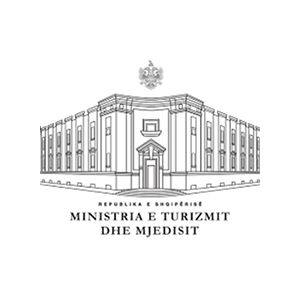Erni Kocani, URI
As a developing country, Albania continues to face numerous environmental problems. Demographic change, rising consumption, low education on environmental issues and many other factors of a free economy cause mismanagement of the amount of waste generated.
During the drafting of the report on the assessment of the level of approximation of European legislation to the Albanian one in the frame of Green27 project, supported by the SANE27 program, were reviewed the main Directives related to the municipal solid waste management, the implementation of which is interrelated.
The Waste Framework Directive frames the entire sector and aims to protect the environment and human health by emphasizing the importance of proper waste management. This directive has been partially approximated with the Law on Integrated Waste Management, while it remains largely unimplemented and further efforts are needed to achieve a satisfactory level of implementation.
In 2020, the Albanian Government approved the “Strategic Policy Document and the National Integrated Waste Management Plan 2020-2035” (Strategic Policy Document) and the “National Sectoral Plan for Solid Waste Management” (Sectoral Plan), documents which defines strategic objectives, goals and infrastructure needed for integrated waste management.
These documents are important for the improvement of the sector, but they must be followed by regional and local waste management plans and investments for the construction of temporary storage facilities (transfer stations) and sanitary landfills in order to achieve a good environmental status.
Currently 3 out of 10 regional plans and 14 out of 61 local waste management plans have been drafted. On the other hand, 4 sanitary landfills are in operation (Shara, Maliq, Bajkaj, Vau i Dejës) and 1 incinerator (Elbasan) which treat in a controlled way only a part of the waste generated in the territory of the country.
Data from the Strategic Policy Document suggest that there are 199 illegal dumpsites in which municipal solid waste and not only, have been deposited, where some of them are located along watercourses and rivers. Waste deposited in these water sources sail to the shores of the seas, adversely affecting the ecosystem and aquatic – terrestrial flora and fauna. In addition to the damage caused to the environment, this floating waste have a negative visual impact for inhabitants, local and foreign tourists who visit our country.
Initiatives are constantly taken by national institutions, local, donor and civil society to clean the territory from improperly disposed urban waste, but although a momentary improvement is created, it is not sustainable and the situation remains worrying.
Through these initiatives, it is noticed that especially water resources are seen as suitable options for waste disposal and among the typologies that are encountered most often are plastic waste.
During 8 cleaning and monitoring activities carried out by the Urban Research Institute in 2018 – 2019 at the delta of Buna River and at the Cape of Rodon beach, where are the deltas of the Buna and Ishëm rivers were collected 5,981 items with a total weight of 620.30kg. The items found on these beaches have been of all the typologies but the ones that dominated were plastic waste with 3,514 items with a total weight of 281kg. These two rivers flow from east to west, traversing many urban areas, which affect the pollution of these two water sources.
Measures that would provide a sustainable solution to this phenomenon are primarily the drafting of regional plans and the completion of infrastructure for temporary and final disposal of waste, which would facilitate and make local plans feasible. Among other measures that would affect the solution of this problem are the extension of waste management service throughout the country to collect the entire amount of waste generated and better monitoring of the territory to minimize disposal of waste without criteria.
In particular, the management of plastic waste requires the establishment of the system of extended producer responsibility, a system that will increase cooperation between producers, exporters, recyclers and central and local institutions to address this issue.
The floating of waste will continue … unless concrete and comprehensive measures are taken to stop their journey.
2




